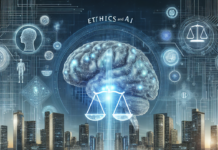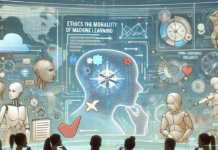Exploring the Dark Side of AI: Bias, Privacy, and Security Risks
Artificial Intelligence (AI) is revolutionizing industries, improving efficiency, and enabling new technologies. However, alongside its advantages, AI also poses significant challenges. This article explores three of the most concerning aspects of AI: bias, privacy, and security risks.
1. Bias in AI Algorithms
Bias in AI systems can lead to unfair treatment of individuals based on race, gender, age, or other characteristics. AI algorithms are trained on datasets that can carry the historical biases of their creators or the society from which they originate. When AI systems make decisions in critical areas such as hiring, law enforcement, and healthcare, bias can have serious repercussions.
Examples of AI Bias
Numerous case studies have highlighted instances where AI has mirrored societal biases:
-
- Facial recognition systems that have higher error rates for people with darker skin tones.
-
- Job recruitment tools that favor applicants with certain demographic traits based on biased training data.
Addressing bias requires rigorous testing, transparency, and the inclusion of diverse datasets in training processes. Moreover, organizations must implement ethical guidelines to ensure fairness.
2. Privacy Concerns
AI technologies often rely on vast amounts of personal data. This data can include sensitive information that, if mishandled, can jeopardize individual privacy. The rise of AI in surveillance, data collection, and tracking raises serious questions about consent and the ethical use of personal data.
Data Handling Practices
Organizations must be diligent in their data practices, employing measures such as:
-
- Anonymizing user data to protect identities.
-
- Obtaining informed consent before data collection.
-
- Implementing strong data security protocols to safeguard against breaches.
3. Security Risks Associated with AI
As AI systems become more prevalent, they also become targets for malicious actors. Cybersecurity risks associated with AI technologies include:
-
- AI-powered cyberattacks that can adapt to defenses.
-
- Deepfakes, which can be used for misinformation and fraud.
-
- Manipulation of AI behavior through adversarial attacks, leading to harmful outcomes.
Organizations must be proactive in their cybersecurity efforts, employing AI to bolster defenses while also preparing for potential AI-based attacks.
Conclusion
The exploration of AI’s dark side—bias, privacy concerns, and security risks—highlights the need for responsible AI development and governance. As we continue to innovate, it is imperative that we confront these challenges with transparency, ethical considerations, and a commitment to justice. Only then can we harness the full potential of AI for society’s benefit without falling prey to its pitfalls.
Examining the Negative Aspects of AI: Security, Privacy, and Bias Concerns







